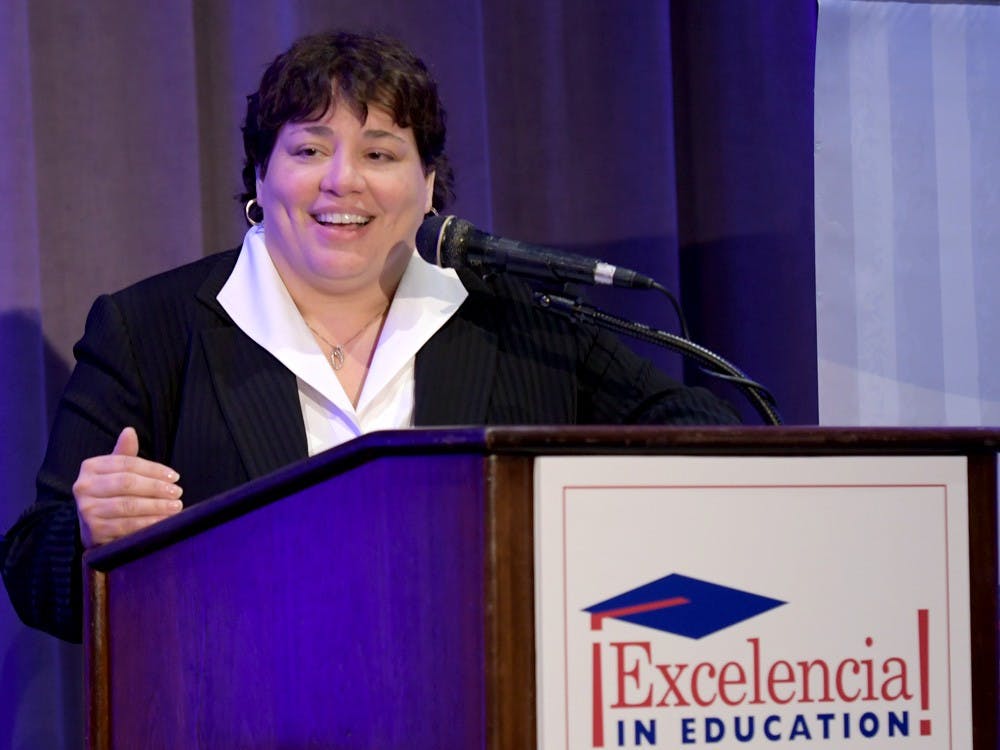ASU has been named one of nine recipients of the first “Seal of Excelencia” by the national Latino advocacy group Excelencia in Education.
The certifications recognizes institutions of higher education helping to further the success of Latino students in the U.S.
“We started our work with Arizona State University about six years ago,” said Deborah Santiago, co-founder and CEO of Excelencia in Education. “There was a program on campus that had been nominated for examples of excellence, and that’s a strategy we look for to identify what works with evidence for effectiveness.”
The finalists were judged in three categories to prove their commitment to Latino student success: Data, practice and leadership.
For ASU, this included increasing the percentage of Latino students and degree attainment, influencing policy discussion on Latino achievement and building demand in Latino communities to receive postsecondary education, ASU's Vice Provost for Inclusion and Community Engagement Stanlie James said.
"We have programs for parents and students, and those programs are often the programs that are often conducted in the community," James said. "So by going out to them and presenting programs to them and working with them and their students, they learn about ... what it means to go to college."
To receive the certification, ASU filled out a application citing statistics related to the success of Latino students including enrollment, community partnerships and more importantly, graduation rates, Santiago said.
“We want the community to know that there are institutions that are being very intentional in not just enrolling them, but helping them succeed throughout their educational experience to completion,” she said.
Santiago was the first in her family to go away to college, though, her father was the first to graduate with a bachelor’s degree when she was a junior.
“So I was the first generation until I wasn’t,” Santiago joked.
“I had to figure it out on my own,” Santiago said. “(My parents) were supportive, but they didn't know how to apply for financial aid. They didn't know how to choose an institution that was a good fit.”
Santiago said she used a lot of what she learned during those years in college to help inform the work she does today. The announcement of the certification on June 20 signaled the first step in helping other first-generation Latino college students be successful in college and beyond.
Of the 33 that applied, nine institutions were selected to receive the inaugural certification. While granted the Seal of Excelencia in its first year, ASU will need to apply again in two years to retain its certification with Excelencia in Education.
"Let's just recognize that this is not a done deal," James said. "We are only just beginning, and we will continue to develop new programs that we think will be helpful in this goal of making sure that all our underrepresented group have access and are able to to pursue education."
Excelencia in Education’s goal goes beyond success in college. They hope the Seal of Excelencia will strengthen the Latino community in the economy.
“Our broader aim is we need to ensure America's future and make sure that Latinos, amongst all, are being well served because that is the youth and the growing population in the country,” Santiago said.
While college enrollment and graduation rates of Hispanic students have increased in recent years, still less than 23% of Latino adults have earned a college degree compared to about 47% of white adults, according to 2016 census data.
Santiago said the Seal of Excelenica is not an award but is instead a commitment by colleges and university's to help further the success of Latino students.
“While students are trying to do well and right to reach the American dream of economic and social mobility, of which we believe education is at a part, institutions have to meet students at least part of the way there,” Santiago said.
Reach the reporter at cbudnies@asu.edu and follow @ChaseHBudnies on Twitter.
Like The State Press on Facebook and follow @statepress on Twitter.




